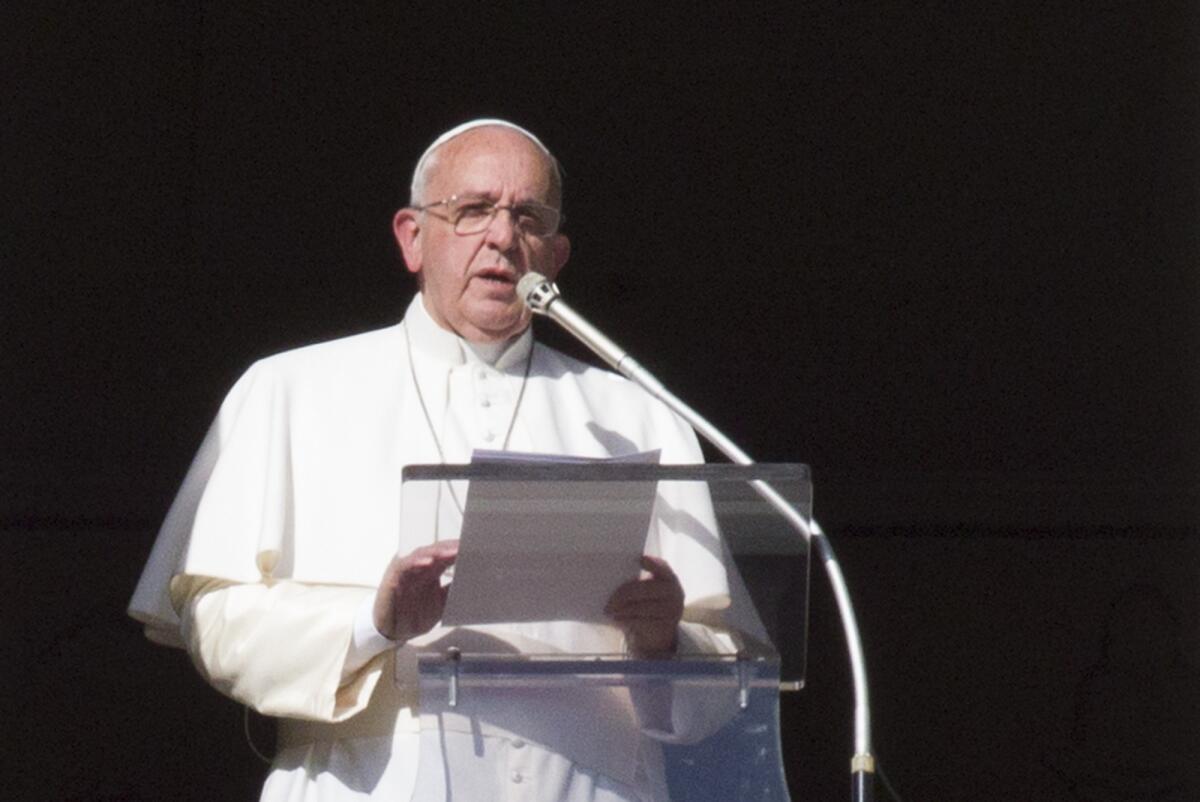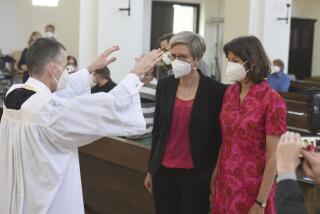Opinión: Pope Francis’ diversity push isn’t necessarily a ‘liberal’ move

- Share via
On Sunday, Pope Francis named 20 new members of the College of Cardinals, 15 of who are under 80 and eligible to take part in the next papal election. As he did with his first batch of appointments to the college, Francis chose several bishops and archbishops from the developing world and bypassed the archbishops of sees in Europe and the United States that traditionally are headed by a cardinal.
More proof that the pope is a liberal, right? That was the tenor of a lot of the coverage. Just as the pope has urged bishops to reach out to the “peripheries” of society (the poor, migrants, fallen-away Catholics), so he is now using his appointment power to name prelates from the peripheries of the world.
But there is a sense in which this diversity initiative is not liberal at all. In announcing the new cardinals, the pope said that they “show the indelible tie with the church of Rome to churches in the world.” But for some liberal Catholics, the goal has been to downsize the papacy and the importance of Rome, not to make the central government of the church more representative.
In 1999, the liberal former archbishop of San Francisco, John Quinn, published a book called “The Reform of the Papacy: The Costly Call to Christian Unity.” In a column in 2005, I summarized the proposal for a downsized papacy as follows: “For one thing, it would be more parochial, more local, with, most likely, an Italian pope who tended to his Roman flock and didn’t stride so much on the world stage.”
In the beginning, the College of Cardinals comprised bishops from dioceses outside Rome; priests from Rome; and deacons from Rome. Those origins are reflected in the fact that modern-day cardinals (even those who have been ordained as bishops) are categorized as cardinal-bishops, cardinal-priests and cardinal-deacons. (Cardinal Roger Mahony, the retired archbishop of Los Angeles, is a cardinal priest with a “titular” church in Rome.)
From the perspective of some liberal Catholics, the internationalization of the College of Cardinals (and the papacy itself) is a move in the wrong direction. Their ideal is of a decentralized church in which local churches (and national bishops’ conferences) make the important decisions, including perhaps the selection of new bishops.
Also, centralization of authority in Rome makes it harder for the Roman Catholic Church to seek reunion with Eastern Orthodox and other churches. Pope John Paul II famously suggested in an encyclical that, in order to encourage reunion, future popes might find “a way of exercising the primacy, which, while in no way renouncing what is essential to its mission, is nevertheless open to new situations.” Citing a decree of the Second Vatican Council, John Paul II noted that in the first 1,000 years of Christianity, the bishop of Rome merely “acted by common consent as moderator” when Christians disagreed about beliefs or practices, rather than as an ecclesiastical micromanager.
Pope Francis has made similar comments. When he met the head of the Eastern Orthodox Church in Turkey last year, he said that if the Catholic and Orthodox churches reunited, Rome would not insist on the “submission of one to the other, or assimilation.” That might be a more credible assurance if “Rome” mostly consisted of Roman, or at least Italian, cardinals.
Given the shrinkage of the world because of travel and instantaneous communication, it’s probably naive to believe that the papacy could be downsized to its dimensions in 1000 A.D. If Rome continues to rule the ecclesiastical roost, it makes sense for the College of Cardinals to be internationalized and for the papacy to be open to non-Italians. (Francis is the third non-Italian pope in a row.) But this is diversity in the service of centralization.
Follow Michael McGough on Twitter @MichaelMcGough3
More to Read
A cure for the common opinion
Get thought-provoking perspectives with our weekly newsletter.
You may occasionally receive promotional content from the Los Angeles Times.







